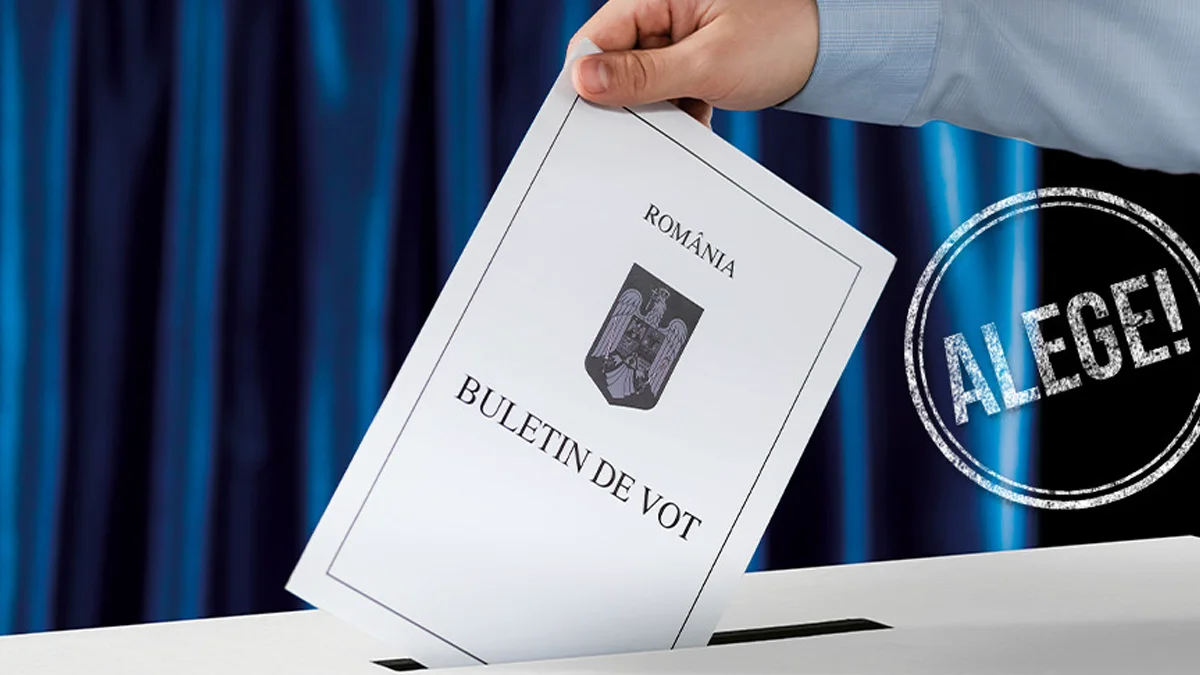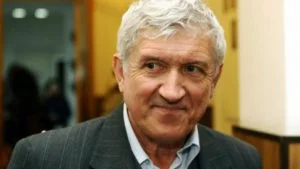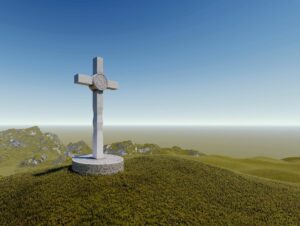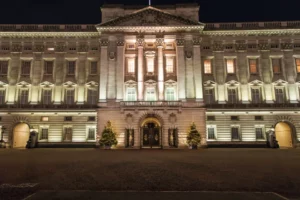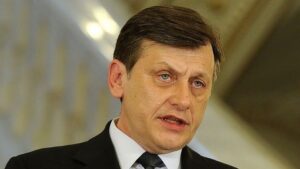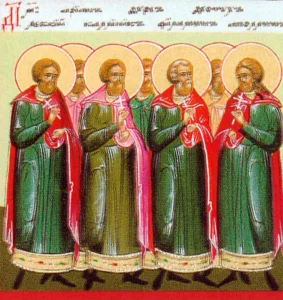„The Ghosts” of Romanian ESPIONAGE, the most valuable SECRET. SIE General Cornel Biris, the former U-Brigade Commander, has decided to speak! (I)
- Mirel Curea
- 6 iulie 2018, 18:55
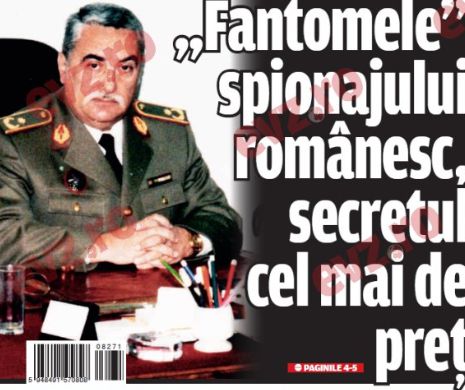
Very few are the situations in which the revelations assumed by those from the intelligence services to clarify aspects of historical importance.
The reasons are clear, the disclosure is not at all a concern of the officers in these services, on the contrary. Rarely, such a character has made a decisive contribution to placing a totally unknown chapter, but of the utmost importance for the public, in the light. There are, however, rare exceptions. Like the one constituted by the disclosures made in General Cornel Biris' interview given to General Petru Neghiu for the Periscop Magazine, a publication of the Association of Military Cadres in Reserves and Withdrawal from the Foreign Intelligence Service.
To be very clear from the start, for more than 30 years, the foreign intelligence officer Cornel Biriş, has worked in the most secret unit of any espionage service in the world: the one called "The Ghosts". When he was discharged in 2002, he was the head of this unit.
But not just about the specifics of this activity, working with the "ghosts," General Cornel Biriş speaks in his interview, but also about other totally unknown issues. Some, tremendously important, such as the betrayal of "ghost" officers by the heads from Central Intelligence, their disclosure to counter-espionage services in the countries in which they acted, the abolition of the "Ghost" Unit by Ioan Talpeş, and about the participation of a Romanian external intelligence officer in assassination missions, will surprise to the fullest.
Just as they surprised me a few years ago, when I found them, while having a coffee, from General Cornel Biris, a character who honors me with his 25-year-old sympathy, since my colleague Dan Andronic introduced us. Over the course of a few episodes, we will enter the themes approached by General Cornel Biriş, signaling the passages taken from the interview published in the Periscop Magazine, but also intervening with explanations to clarify issues, as I said above, unknown to the general public.
From 1971 to 2002, General Cornel Biriş served in the Foreign Intelligence Service, within the most secret department of State Security, the Brigade "U" ("The Ghosts"). Within this "special brigade", he was involved in the training and direction of fully conspirators officers, the "ghosts," as well as officers who recruited, trained and kept in touch "ghosts". But what is that, a ghost officer?
It is the most precious, both literally and figuratively, capital of an external intelligence service. "The fully conspired officer," or "ghost," as he is called, is the foreign intelligence officer most often sent under a false identity, obviously, other than his own, in a foreign country, in order to carry out espionage operations in impenetrable environments by classical means.
Firth death, second life
To avoid suspicion from counter-espionage services in the countries where he was placed, the "ghost" officer training process was an extremely laborious one, in which even the slightest mistakes in training were not allowed, because any mistake could be fatal. Practically, the one who started on this road ended his first existence. Hence the name of "ghost" given to this absolutely special professional category.
"Dead" in his first life, the officer was stepping into the second. The Renaissance meant that he had to learn everything he would have known if he really was the citizen who would claim to be. From the language he would master to perfection, like a native, to the knowledge of topographies, laws and habits of the place, from acquiring all knowledge of the country and the people in the midst of which he would live, to memorizing all the information that any native knew about his country and his land, the "ghost" officer had to integrate perfectly into the environment in which he was to be implanted, not to differ from the rest of the citizens there. Any mismatch any stridence, any suspicion, could compromise the mission, and put him in prison for decades.
Long polished diamonds
Even from this brief presentation, it is easy to deduce the thoroughness with which a "ghost" was built, as well as the importance that this category of intelligence officers represents in spying activity.
About these "long polished diamonds", as were called the ghost officers by a legendary head of an intelligence service, General Cornel Biris also speaks in the interview from which we quote:
"Why" ghosts "or" shadows "? The notion is given by the absolutely necessary fact that the activity of selection, employment, training, assignment and liaison with this kind of officers is carried out under strict conspiracy. Their identity was known by a small number of officers in the Central, namely the "instructor officer" (who was also in touch with him during the mission) and by his bosses strictly hierarchical.
Often, their number was substantially reduced, in fact, the true identity was known, in a few cases, by all the bosses. The documents from which the identity of these officers arose were kept only by the "instructor officer".
I would define such a structure: "The tip of a lance" of an external intelligence service that has the mission of penetrating informative-operative objectives, organizations, environments, or any other form of organization in which line structures cannot enter informative. Also, this unit uses methods and means specific to the purpose for which it functions, having an absolutely independent organization and structure, being equipped with specially trained personnel. "
A suggestive image
"To break the monotony of my narratives, I wish to tell you a little story that was told in the 1970s to all newcomers in the unit. To their question what "ghosts" are, the story they were told was that the structure of external information is like a sailing ship, but also paddle, sailing on the oceans of the world. When the wind did not inflate the sails of the ship, the "ghosts" lying down in the gallows had to struggle to push the ship into its path. From the deck often came yelps of joy, clink of champagne glasses, and glimpses of diplomatic chatters. The "ghosts" below were not allowed to take part in such actions. In the air they were seldom taken, and only on moonless nights, so in darkness."
Mandatory qualities
Asked about the main features and qualities with which a "ghost" officer had to be endowed, General Cornel Biriş proves to be an outdated man when responding among others, but first, "a good patriot": "The answer must be emphasized from the beginning of the activity of such an officer. All requirements are equally important, and they must be met in their entirety. Very briefly, we could enumerate the following qualities:
- a good patriot, with a strong spirit of love for the country, for the nation and the people;
- good training in the basic specialty that can enable him to evolve in the destination space and objectives, where he can access the information of interest;
- a perfect behavior and morality in the family, society and any community they attend;
- skills for conducting an informative activity from the positions for which he / she is trained, power for analysis and synthesis of the data and facts of operative interest he/she is confronted with, sociability and perseverance;
- skills and real inclinations necessary for his personal protection and the activity he will perform, self-mastery, courage and resilience to prolonged physical and psychological pressures.
Full coverage must be free of any cracks, as a slight dearth on this line may cause disaster at some point. There have been cases where, after years and years of efforts to prepare such officers, we had to give up due to mistakes that occurred along the way and could not be overlooked. Likewise, there have been cases when some officers have been withdrawn from the outside of the mission, as cracks have appeared in line with preserving their conspiracy. Here, in fact, it's like in aviation: one can only be wrong, once."
Stephen the Great was not a KGB!
No, the system of working with "ghost" officers was not invented by the Russians and is not a technique invented by the KGB, as it is believed! In his interview, General Cornel Biriş removes this cliché:
"The old chroniclers have inserted in their works some interesting aspects of information work with this specific, since the time of ruler Stephen the Great. I thus mention the spies that were sent to the temporarily occupied territory of the enemy, equipped with verifiable legends about their movement in the area of interest or by implanting them in the territory to be invaded by the enemies.
After obtaining the information, they were processed by codes and conventions, to be sent home to commanders. There are also two ways of transmitting information: one is using people who could travel to and outside the conflict zones, because of their occupation agreed by invaders - producers of agro-food products who left the villages where they lived and arrived in densely populated settlements to sell their merchandise.
Nothing but special couriers. Other: the vaults were usually hidden places, from where you could see or hear facts and data that became useful information to be used by the opponent, but they could also be places to secure the deposition of secret data, being later taken over by their recipients. Nothing but the famous "impersonal postal boxes", "dead letter box" today. I do not think that the activity on this particular matter, carried out during the time of Stephen the Great, would have been of KGB origin!
In fact, all of the strong powerful intelligence services, who respect themselves, use this line of work for high-risk actions or operations, or to obtain information from particularly protected targets."
Who is the General of External Information Cornel Biriş?
From time to time, obscure or anonymous characters remembered General Cornel Biriş, blogs or peripheral sites under his sign use "it is said," or "it seems". Nothing important about his real activity has ever been advertised. Although the name, some of the functions held and some data about his activity appeared in the book "The Last Illegal Courier - The Memoirs of a Romanian Spy" written by former spy officer, Cornel Nemetzi (Nemeti), the information contained in the book is under the sign of subjectivity and that's why they are not worthy of being taken seriously. In this respect, and for the reasons why Nemetzi painted the general in gloomy colors, we will come back leisurely. But let's give General Cornel Biris the opportunity to present himself.
Military family
"I was born on October 24, 1945, in Predeal, in a family where military order, rigors and discipline were placed in a central place. My father, career military, has succeeded in developing to me and my brother the love of military career with everything that flows from it. Also, the uncle from my mother's side was a military, and my brother followed the courses of Dimitrie Cantemir Military High School in Breaza, then the ones of the School of Officers, graduating them a year before me.
After the courses at "Iulia Haşdeu" High School in Bucharest, I attended the MAI No.2 Police School, Police specialty, between 1963-1966, and in 1969 I graduated from the Faculty of Law in Bucharest, with a diploma exam at which I got the mark 9 (nine)."
Covered in Militia
"My training activity didn't stop here. I attended the 2-year courses of the Foreign Information School during 1971-1973, and after 1990 I attended two postgraduate courses of 1 year and 6 months, respectively.
Without referring to Lenin's saying of teaching, I have become proverbial among my colleagues and subordinates whom I suggest to learn from each and every situation we face in our work, not to use recipes or templates in cases that seem alike, searching and inventing new forms and methods of work. We learn until the last moment of life.
After the officers' school, in 1966 I was assigned to work in the Operative Service - Investigation Section, a covered unit IGP subordinate. In 1971 I was transferred to the Foreign Intelligence Unit within a special brigade where I worked until my retirement in 2002."
Bottom up
"Throughout this period of 31 years, I have been here as an operational officer instructor, head of office, head of department, deputy head of unit, and since 1995 chief of unit. During the period 1986 - 1989 I also served as an officer in charge of education within the unit, during which I realized the educational programs on the specificity of the unit, the elaboration of the professional lessons regarding the training of the instructing officers and officers of the special apparatus, on stages and specific activities. Basically, I have gone through all the functions and special work compartments from the execution to the command.
I remember with pleasure and respect my former bosses, who, during the course of their work, leaned with care and skill to my training as an instructor officer in this complex activity of external information and I live with the hope that they were satisfied with the investment made. I incline with pious respect in their memory, with the sincere desire for God to have them in his care, as none of them are no longer with us.
I would also like to add that during the course of the activity, I have had several occasions to be sent to the post outside by the line units, each time refusing to leave the unit in which I worked, being understood by my superiors."


